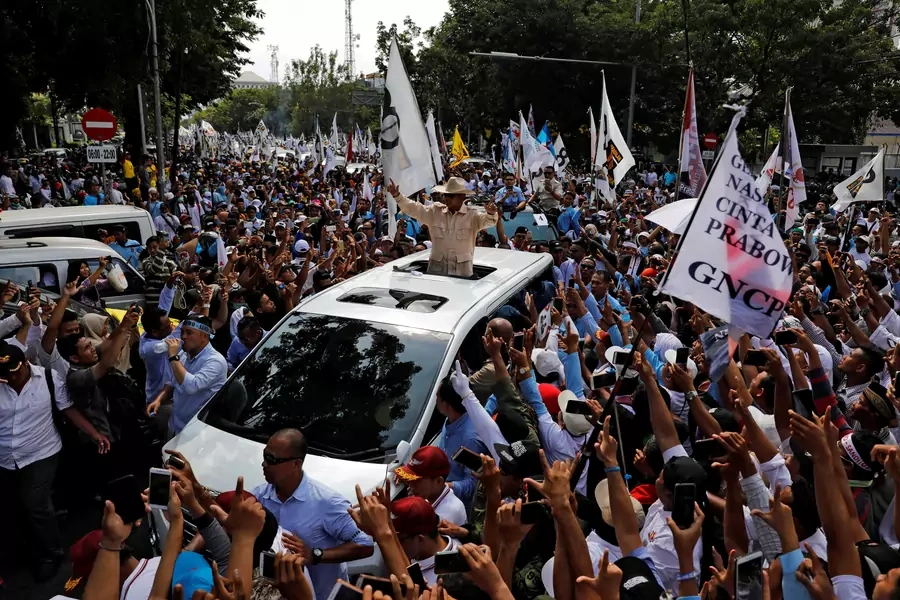The Continued Power of Militaries in an Increasingly Autocratic World

More on:
Three events this week served as a reminder that, in a world where democracy is buffeted on many fronts—the rise of populists who often undermine the rule of law, a growing disinterest in democracy promotion from leaders of the United States and other states, and the influence of major authoritarian powers—armed forces remain political actors in many countries, despite an overall reduction in coups since the days of the Cold War. In Thailand, ruled by a military junta since 2014, the military’s favored party won the largest share of the popular vote in elections last month, but a group of anti-junta parties appear, overall, to have garnered the biggest number of seats in the lower house of parliament. So, the Thai military appears to be maneuvering to ensure that the second-biggest party in the anti-junta alliance is defanged, and to use a range of inducements to convince smaller political parties to join the pro-military alliance in parliament. No matter what happens, it is almost certain that Thailand’s military will remain in control of government, resisting attempts at real civilian oversight of the armed forces.
Meanwhile, in Indonesia, which holds presidential elections next week, the military is steadily regaining much of the power it lost in the period after the fall of Suharto, as Indonesian democracy emerged. As Evan Laksmana notes in the New York Times, both candidates in the Indonesian elections, incumbent Joko Widodo (known as Jokowi) and challenger Prabowo Subianto, have helped the military regain power, or will likely do so if elected. If Prabowo, a retired former lieutenant general, were to win (which still seems unlikely given polls of the race) there is a possibility that he would reduce limits on the central government and undermine democratic checks and norms—and potentially allow the military and other security forces far greater rein domestically. Jokowi, though not as openly disdainful of democratic norms and institutions as Prabowo, has surrounded himself with military men. He has allowed the armed forces to reassert their influence over domestic issues including counterterrorism and counternarcotics, among other areas. This is a worrying trend in a country where, for decades, the armed forces were known for dominating politics and committing rights abuses.
In other parts of Southeast Asia, militaries retain significant political leverage, though outright coups have declined since the Cold War, as they have in regions like Africa as well. In Myanmar, the military, still by far the most powerful actor in the country despite a technically civilian government, appear to be extending their new battle in Rakhine State. There, fighting has intensified in recent weeks between the military and the insurgent Arakan Army. The military retains near-total control over internal security, and it is unclear whether operations, like the one ramping up against the Arakan Army, are taken solely on the military’s initiative, or whether the armed forces even really consult with the civilian government before acting.
But Southeast Asia is not unique. In Sudan this week, the armed forces indeed launched a coup, removing longtime leader Omar al-Bashir. To be sure, Bashir was one of the most repressive rulers in the world, and came to power three decades ago in a coup as well. But the military takeover could neuter the massive protest movement in Sudan, prevent a real transition to a freer form of government, and install just as repressive a regime in Khartoum as Bashir’s government.
Just as other types of autocratic regimes have freer rein today than they did in the 1990s and early 2000s, militaries also face fewer constraints on their power. Democratic powers are distracted by their own deep political problems, populations in some states have soured on democracy and looked to other alternatives, and the U.S. government views regions like Southeast Asia as places home to a growing contest for influence with China—and thus requiring closer ties with almost any government willing to align with Washington. The U.S. government appeared ready to completely normalize military-to-military relations with Bangkok, before the election last month, even though the election process was unfair. With Egypt, the White House has lavished fulsome praise on autocratic leader Abdel Fatah al-Sisi, a military man who took power in a coup six years ago and now has indicated he wants to stay in office another fifteen years. The Indonesian military’s creeping re-emergence in Indonesian domestic politics has had little impact on U.S.-Indonesia security ties, or Indonesia’s security links with other regional democracies.
Meanwhile, in a world increasingly looking for strongman rule as an alternative to democracy, to solve crises of graft and a lack of political accountability by elected leaders, military men have become more attractive. In some countries, like Thailand, where populists already have ruled, populations have looked to the military as means of ousting populist leaders—though in reality military governments only further erode democratic norms and institutions.
In places like Egypt, Indonesia, Myanmar, Thailand, or even Brazil, armed forces, too, are again embedding within their military cultures a resistance to civilian oversight—or refusing to change their cultures to embrace civilian oversight. For a time in Thailand in the late 1990s and early 2000s, for instance, it appeared that the Thai armed forces were beginning to shift, with younger officers at least considering an end to the kingdom’s cycle of coups and military meddling in politics. Whatever glimmer of hope there was for a civilianization of the Thai military now has vanished. The country has had two coups in the past fifteen years, and both older and younger generations of Thai officers seem committed to the continuation of the Royal Thai Army as the dominant political actor.
More on:
 Online Store
Online Store